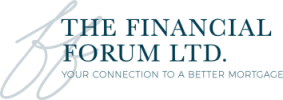
Everyone tells you that getting a great deal on your mortgage comes down to a great credit rating and score. This is a great thing to have and maintain, no doubt. However, it isn’t the only thing that lenders will review.
In fact, even if you have a bad credit rating, you can still get a mortgage.
There are several factors that contribute to the credit decision. Being aware and positioning yourself to achieve the best results possible, are key not only to an approval, but to obtaining the best rate, terms and conditions possible based on your situation.
So, if credit is not the issue, what is the problem?
Debt-to-Income Ratio
What may be surprising to most is which of the above factors is most often the cause of a turn down. It’s not credit scores and not even down payment. It’s your Lending Ratios – GDS – Gross Debt Service Ratio and TDS – Total Debt Service Ratio. This is the number one concern factor that is viewed when underwriting your mortgage application.
In spite of this, most borrowers only have a vague idea of what their own debt service ratios are or what they should look like. More importantly, how lenders view them and what their limits will be.
Debt service ratios for mortgages are the most crucial indicators about whether you are going to be able to afford to repay the mortgage loan.
In essence, debt service ratios for mortgages have two components: The first measures your gross income from all sources before taxes against your proposed monthly housing expenses including the principal, interest, taxes and heating/utilities on the proposed mortgage.
As a general rule, lenders like to see your housing expense ratio no higher than 35 percent of gross monthly income, though there is flexibility to go higher if other elements of your application are strong.
The second debt service ratio component, is referred to as Total Debt Service Ratio. It measures your income against all your recurring monthly debts. These include housing expenses as defined above, credit cards, student loans, personal loan payments and others. Most lenders like to see this figure at 42 percent or below. Again, there is some flexibility here depending on other elements of your application.
Bottom line: Make attempts to stay within your affordability guidelines and try to keep revolving, recurring debt levels to a minimum.
Cash in the Bank
Buying a home comes with many costs you need to pay for on top of the down payment, including closing costs, insurance premiums and taxes. Be ready to show you have these funds available or to show that you can have them available by closing.
Past Credit History
You may have great credit, however, if there were issues in the past, they may still appear on your credit report. If you’ve previously been a homeowner, were the mortgage payments made on a timely basis? If there were any issues in the past, provide an explanation and how you mitigated the issues. Leaving them swept under the rug is not the best answer as if they do come up, it is more difficult to explain after the fact.
Tips for Getting Approved
- Be prepared to apply. Have all your necessary documents ready. The faster you can respond to requests for more information, the faster your request will be approved.
- Save for your down payment. Demonstrating you have the down payment already saved at time of application is a key factor in securing an approval and good rate.
- Pay down debt. If your debt-to-income ratio is one of the reasons you’re not being approved for a mortgage, take time to reduce debt before applying. If you’ve been saving for a down payment, use some of that money to pay down your debt. By eliminating some of your debt, you’ll also increase your cash flow and prove to a potential lender that you have enough money to service your mortgage.
- Purchase below your maximum. Many people try to buy a house with the maximum amount of money a lender will give them. Staying below your lending limits will assist you in your approval and also in your lifestyle after the fact.
Have any questions, need any advice? Visit us at www.thefinancialforum.ca. Email us at mortgages@thefinancialforum.ca. Call us at (905) 265-0246.
VERICO The Financial Forum Ltd.
“Your Connection To A Better Mortgage”
Together, We Make Mortgages Easy!





